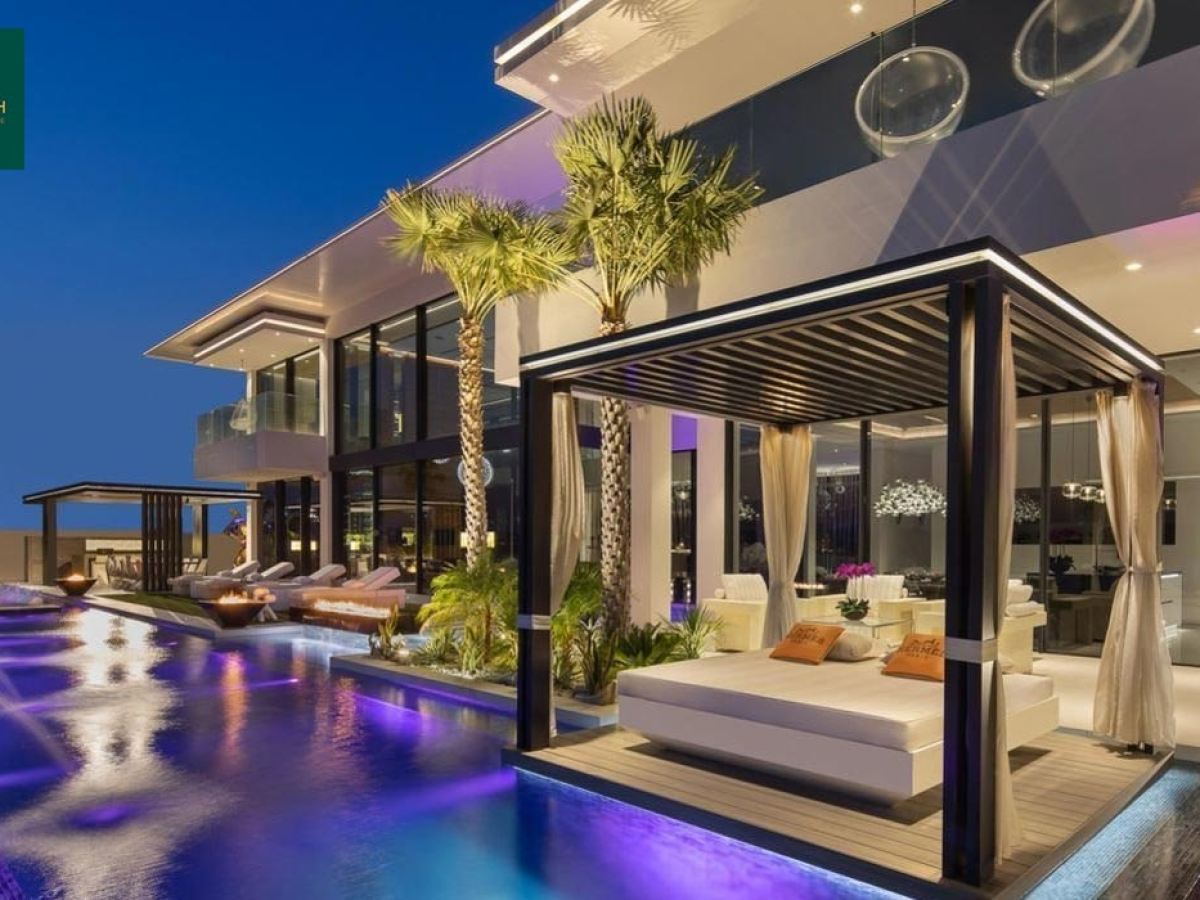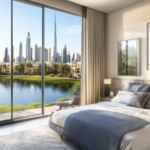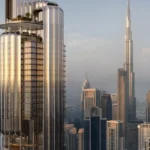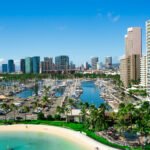Now Reading: Why Sustainable Communities Lead Dubai’s Real Estate Market in 2025
-
01
Why Sustainable Communities Lead Dubai’s Real Estate Market in 2025
Why Sustainable Communities Lead Dubai’s Real Estate Market in 2025
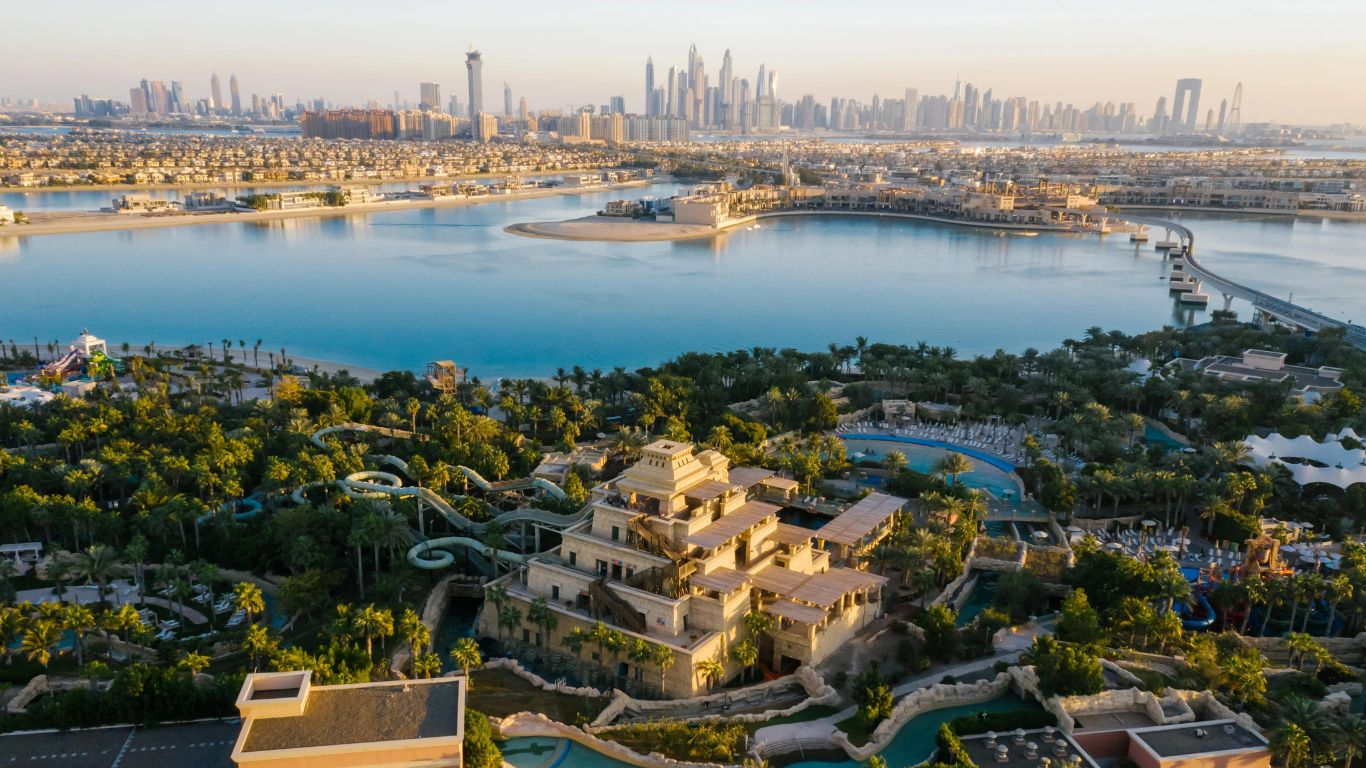
Table of Contents
Imagine waking in a villa powered by solar panels, your private garden blooming with native plants, and a community buzzing with eco-friendly events like organic markets and cycling clubs. This is the heart of Dubai’s sustainable communities in 2025, where real estate is redefining modern living with eco-conscious design, luxury, and connection. These aren’t just homes they’re green sanctuaries that nurture both the planet and their residents, drawing families, professionals, and investors to a city that feels both visionary and warmly welcoming.
Dubai is a global hub that balances bold innovation with a multicultural spirit, and its commitment to sustainability is driving the real estate market in 2025. Communities like Dubai Sustainable City, Dubai Hills Estate, Mohammed Bin Rashid City (MBR City), and Jumeirah Village Circle (JVC) are leading the charge, offering villas, townhouses, and apartments designed for green lifestyles. With solar-powered homes, smart systems, and lush green spaces, these projects are why sustainable communities are at the forefront of Dubai’s real estate market. Let’s explore what makes them so captivating.
The Allure of Sustainable Communities
What makes Dubai’s sustainable communities so irresistible? It’s their ability to blend eco-friendly design with a lifestyle that feels personal and luxurious. Picture yourself in a Dubai Sustainable City villa, where rooftop solar panels power your home, or in a Dubai Hills Estate villa with smart irrigation nurturing your garden. MBR City’s waterfront mansions feature energy-efficient designs and lagoon views, while JVC’s affordable townhouses are surrounded by 33 parks perfect for family bike rides. These communities, crafted by developers like Emaar, Nakheel, and SEE Holding, are built to harmonize with the environment while fostering connection.
Each community has a unique green vibe. Dubai Sustainable City is a pioneer with car-free zones, urban farms, and solar-powered homes, creating an eco-oasis. Dubai Hills Estate offers upscale living with sustainable landscaping, the Dubai Hills Mall, and an 18-hole golf course. MBR City dazzles with its 7-km Crystal Lagoons powered by renewable energy, ideal for eco-conscious luxury seekers. JVC’s village-like charm includes parks and shaded walkways that reduce car reliance. Residents enjoy amenities like rooftop gardens, EV charging stations, and smart home systems, alongside proximity to top schools like GEMS International and business hubs like DIFC, just 15-30 minutes away.
The homes are designed for eco-living. Dubai Sustainable City’s villas feature rooftop solar arrays and smart water systems. Dubai Hills’ Park Heights offers 4- to 6-bedroom villas with solar panels and private green spaces. MBR City’s District One boasts mansions with low-carbon materials and lagoon views, while JVC’s Circle Villas provide 3- to 5-bedroom layouts with sustainable designs. These properties combine green technology like AI-driven energy monitoring and eco-friendly construction with lifestyle amenities like community farms and fitness hubs, creating homes that feel both luxurious and earth-friendly.
Why Sustainable Communities Lead the Market
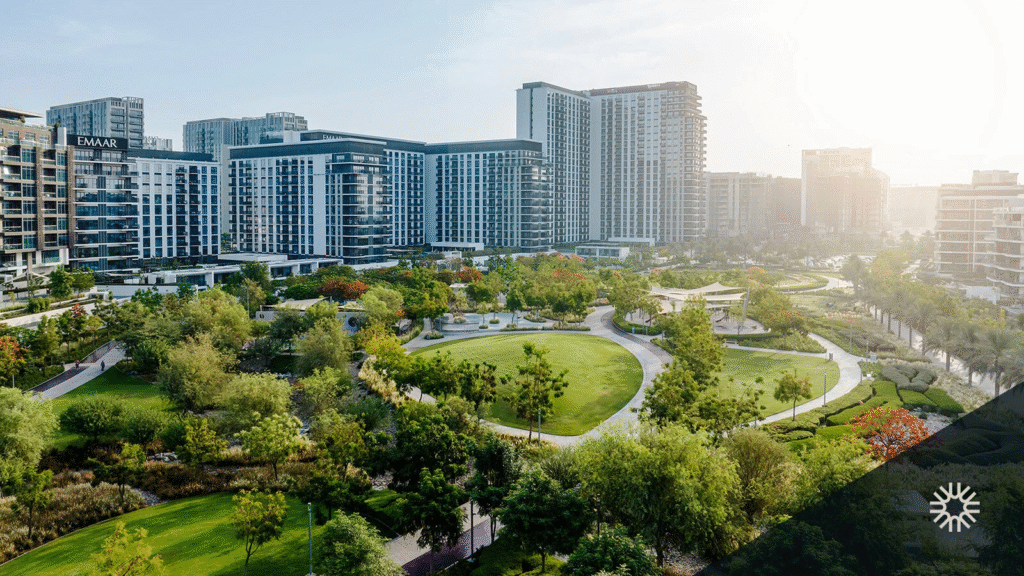
The numbers behind Dubai’s sustainable communities are striking. In 2025, property values are rising 9-13% year-on-year, aligning with Dubai’s 11.3% market average. MBR City villas average AED 10-25 million, with 15% growth over five years, while JVC villas range from AED 2-4 million, up 12% annually. Dubai Hills villas fetch AED 10-20 million, and Dubai Sustainable City villas average AED 2.5-5 million, with 12% growth. Rental yields are robust at 5-7%, driven by demand from eco-conscious families, professionals, and expatriates. Short-term rentals, fueled by Dubai’s 17.2 million visitors in 2024 and a projected 25 million by 2030, achieve 70-80% occupancy, with nightly rates of AED 1,000-5,000.
Sustainability and lifestyle appeal drive this market leadership. Residents are drawn to features like solar power, smart irrigation, and community recycling programs, reflecting a global shift toward eco-conscious living. JVC and Dubai Sustainable City offer affordability, making them ideal for young families and first-time buyers, while Dubai Hills and MBR City attract affluent buyers seeking green luxury. Off-plan projects, like Sobha Hartland II in MBR City and Park Heights 3 in Dubai Hills, account for 40-50% of sales, with buyers snapping up units for their eco-features and growth potential. Dubai’s reputation as a safe, vibrant hub attracts buyers from Europe, Asia, North America, and the Middle East.
Dubai’s investor-friendly policies fuel the trend. Full freehold ownership allows global buyers to invest without restrictions, and the UAE’s tax-free environment no income, property, or capital gains taxes maximizes returns. Off-plan properties require just 10-20% upfront, lowering the entry barrier. High-value purchases qualify for the UAE’s Golden Visa, offering residency benefits that appeal to families and professionals. Connectivity is seamless, with Sheikh Zayed Road, Al Khail Road, and the Dubai Metro linking these communities to Downtown Dubai and DIFC within 15-30 minutes.
A Lifestyle That Feels Green and Connected
Living in Dubai’s sustainable communities is about more than eco-technology it’s about connection and joy. In Dubai Sustainable City, residents shop at urban farms and join composting workshops, fostering a sense of shared purpose. Dubai Hills offers golf course strolls, eco-friendly festivals at the Dubai Hills Mall, and family yoga sessions in green spaces. MBR City’s Crystal Lagoons host sustainable water sports and waterfront picnics, while JVC’s 33 parks are perfect for family bike rides and community barbecues. These neighborhoods are designed to nurture eco-living, with car-free zones, recycling programs, and community centers that bring people together.
Take Aisha, a mother of three in JVC. “The parks are our playground,” she says. “We cycle as a family, and it feels so green.” Omar, a professional in Dubai Hills, loves the sustainability. “My villa’s solar panels save energy, and the community is vibrant,” he shares. Noor, a young mother in Dubai Sustainable City, cherishes the eco-vibe. “Our home runs on solar power, and we grow our own veggies,” she says. In MBR City, Sarah, a British expat, adores the lagoon. “We have picnics by the water, and it’s so eco-friendly,” she says.
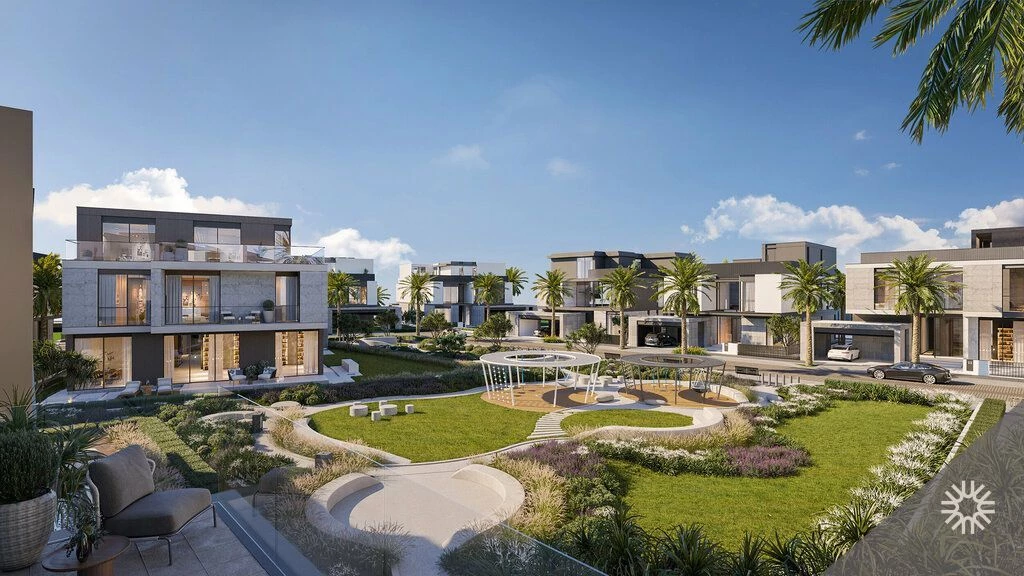
Sustainability is the heart of these communities. Projects like Dubai Sustainable City and Dubai Hills incorporate solar panels, smart irrigation, and low-carbon materials, aligning with the Dubai 2040 Urban Master Plan. JVC’s green spaces and MBR City’s renewable energy initiatives reduce car reliance, while Sobha Hartland II features EV charging stations and AI-driven utilities, appealing to eco-conscious buyers. These efforts make Dubai’s sustainable communities not just green but visionary.
Challenges to Navigate
These communities come with hurdles. Maintenance fees average AED 8-12 per square foot in JVC and AED 10-15 in Dubai Hills, MBR City, and Dubai Sustainable City, higher than in emerging areas like Dubai South. Ongoing construction in newer phases, like Sobha Hartland II or Park Heights 3, may bring temporary noise or delays. The short-term rental market, while lucrative, faces competition from hotels, which could pressure yields in oversaturated periods.
Yet, these challenges are part of the opportunity. Maintenance fees support eco-friendly amenities, from solar-powered pools to 24-hour security, which attract residents and tenants. Early investment in developing phases offers lower prices, with historical trends showing 15-20% appreciation for early buyers in JVC and Dubai Sustainable City. Dubai’s real estate market, with $142.4 billion in sales in 2024, remains robust, and sustainable communities are leading the way.
Stories That Bring It to Life
The human stories behind Dubai’s sustainable communities make them shine. Khalid, a father in JVC, loves the green vibe. “We cycle in the park, and the kids join eco-workshops,” he says. Maya, a professional in Dubai Hills, cherishes the sustainability. “My villa’s solar panels are a game-changer,” she says. Sarah, a retiree in MBR City, enjoys the tranquility. “The lagoon views and eco-designs are a dream,” she says. In Dubai Sustainable City, Ahmed sees both profit and joy. “My villa was AED 3 million, and it’s up 10%,” he shares. “But I love the urban farm.”
These stories reflect the dual appeal of Dubai’s homes: they’re eco-friendly sanctuaries and smart investments. Whether it’s a bike ride in JVC, a green festival in Dubai Hills, or a farm-to-table meal in Dubai Sustainable City, these communities create moments that linger.
Tips for Aspiring Buyers
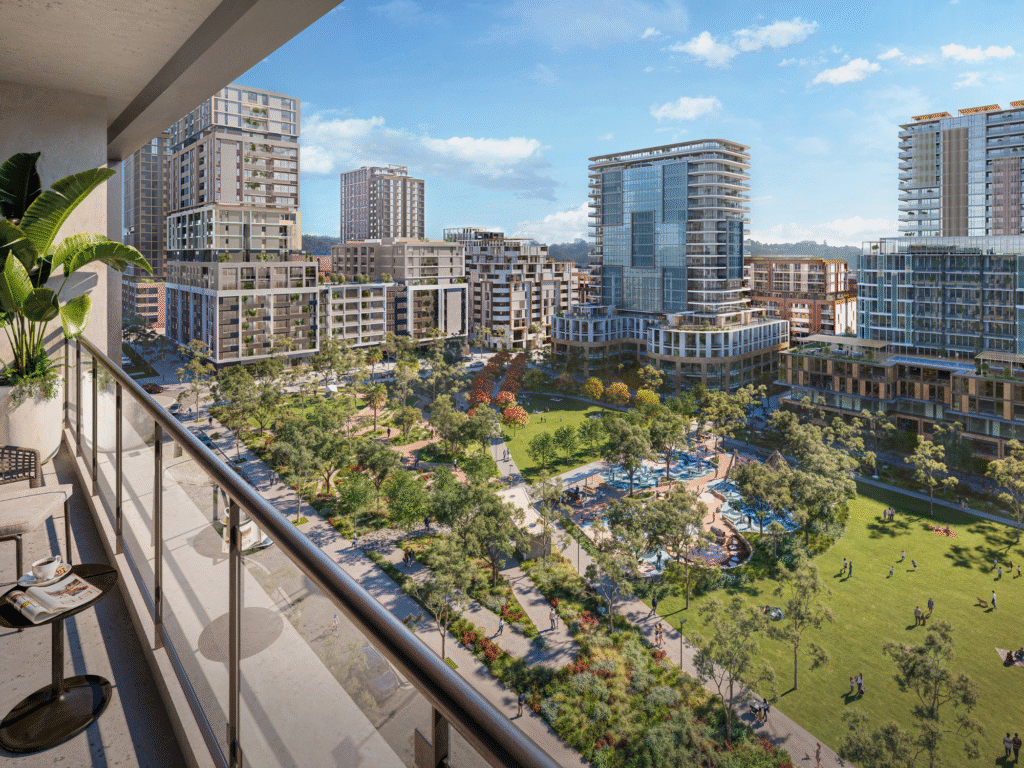
Ready to dive into Dubai’s sustainable real estate? Here’s how to make it happen:
- Research Market Trends: Study price growth and rental yields in JVC, Dubai Hills, MBR City, and Dubai Sustainable City to find high-potential opportunities.
- Choose Trusted Developers: Work with Emaar, Nakheel, or SEE Holding for quality and reliability.
- Plan for the Long Term: Aim for a 5-10 year horizon to maximize appreciation, especially in off-plan projects.
- Leverage Expertise: A local real estate agent or lawyer can navigate freehold laws and secure the best deals.
The Future of Sustainable Living
In 2025, Dubai’s sustainable communities are more than real estate they’re a vision of green living. New projects like Sobha Hartland II, Park Heights 3, and expansions in Dubai Sustainable City are pushing the boundaries of eco-friendly luxury. As Dubai aims for 25 million visitors by 2030, these communities will remain vibrant hubs, driving property values and rental demand higher.
For residents, it’s about the joy of eco-living park bike rides, lagoon picnics, and green community events. For investors, it’s a chance to build wealth in a city that’s rewriting the rules of real estate. Dubai’s sustainable communities are where dreams meet reality, offering a green, luxurious lifestyle that’s hard to resist. In 2025, these communities aren’t just leading the market they’re shaping the future of Dubai’s eco-charm.
read more: Dubai Real Estate 2025: Smart Lifestyle Homes in High Demand



